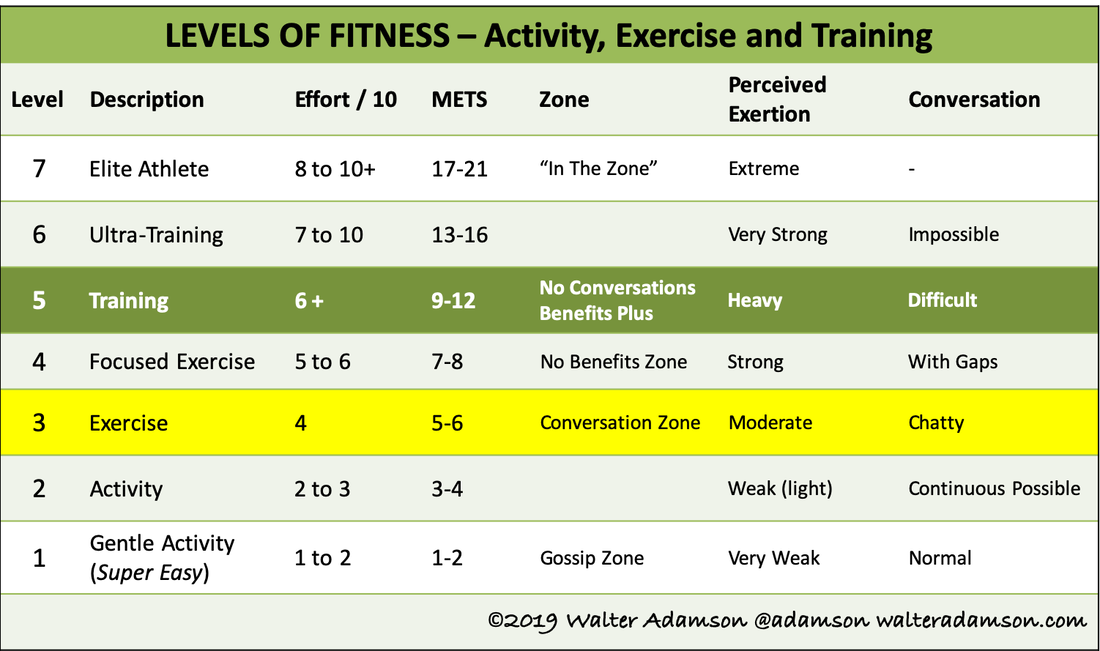|
SEARCH My Blog (Opens in new tab)
Adjust your expectations and get back on trackThe most common reason that you are not losing weight is down to the way we think about our effort and the expected results. At the gym, the average level of energy in cardio classes is modest, but the expectations are high. When the outcomes fall short of the expectations, then we are likely to give up. That applies to all of our endeavours - writing on Medium, learning a language, exercising, or losing weight. We'd be better off to do a reality check on our expectations before quitting. If we can reconcile a less ambitious set of expectations, and then keep putting in the effort, success is much more likely. I've often checked the calorie display on the stationary bicycles at the gym. At the end of a hard, sweaty, class - where I can't do much more - the display is disappointingly modest. Typically around 450 calories, plus or minus 50. Not that I'm complaining about 450 calories worth of effort. That's a significant proportion of my average daily intake of about 2300 calories. If I want to lose weight, I can simply reduce my calorie intake for a few weeks, and I know that my weight will drop - due to the exercise. The usual formula is by reducing by 500 calories a day I could expect to lose 2kg each month. But that's a digression. My point is this: if I am burning "only" 450 calories, then the rest of the class must be burning very little. A few look like they have put in an effort. Most look they haven't even been exercising. It's also apparent from the chatter and their light breathing that most have not made much real effort. I'm not criticising them. Rather, I am suggesting that they need to align their expectations of calories expended with their level of effort. The table below shows the levels of effort, related to perceived exertion, and the equivalent METS. Use level of effort to better estimate caloriesA MET is One Metabolic Equivalent of Task — defined by the amount of oxygen used when sitting at rest — when sitting quietly in a chair. METS are directly related to calories (since calories represent energy). One MET can be considered 1 kcal/kg/hour. Since sitting quietly is one MET, a 70 kg person would burn 70 calories (kcal) if they sat quietly for an hour. Let's do some calculations about the Spin class - the same idea can be applied to any other cardio, e.g. running, walking, and all the machines in the cardio room. Most of the class is operating at Level 3, the Exercise Level - able to chat and putting in a moderate level of effort. That requires 5 to 6 METS, according to the chart. Let's call it 6 METS. For a 60kg person, doing Spin for 50 minutes at 6 METS, the calories burnt as calculated as follows:
To me, that sounds about right, from my observations of the general level of effort. Machines overestimate calories, use level of effort instead would be surprised if this figure of 300 calories "sounded right" to most people, especially those who have just put an hour into a Spin class. I'm sure that they expect more. One reason I say that is because the Spin machine will show more. This post explains why. That is why we need to do calculations based on individual levels of effort - related to how hard you are breathing and how hard it is for you to talk. Then, by converting that in METS and adjusting for your weight, you can get a much better estimate. If we set our expectations beginning from the starting point of a better estimate of calories used, then we can be more realistic about the outcome. Our bodies cleverly become energy-efficientTo set our expectations correctly, we have to take into account a few more fundamental influences of our calorie expenditure. Not good news, I'm afraid. Firstly, if we've been exercising regularly, for example going to our Spin class for 6 months or so, then our body has already become more energy efficient. Our body has become tuned to the exercise and is helping us survive for longer by burning less energy and delivering the same result. That's how runners build up to running marathons and cyclists can ride the Tour de France. You are probably breathing a little more comfortably in your Spin class than when you started. That means that you are now burning less energy. If we reduce the METS by one for our becoming more efficient - and not increasing the intensity - then the energy burn becomes 250 calories. Secondly, add in a "sports drink" - not necessary but often brought to Spin - that's 100 calories of effort lost. (Not counting a protein shake when we get home - another 100 calories lost !) Our net calorie burn is now 250 - 100 = 150 calories as the result of our hour's effort. If you celebrate your gym class with an extra café latte - regular size - that's 120 calories. If we deduct this we are left with 250 - 120 = 130 calories net from our exercise. A large Starbucks coffee will wipe out the whole 250 calories, without the added cake. Visualise 150 caloriesBut let's not be too pessimistic. If we leave out the coffee and come back to the net 150 calories we have lost, then let's compare that to the alternative ways to burn that same amount. These activities burn 150 calories, for a 50kg woman, as compared by METS:
This gives us a good feeling for how much energy we have burnt during a Spin class, or other cardio at the same level of intensity for the same time. It is not much energy in the overall scheme of total energy intake. We can visualise that the energy expended in one hour of yoga is not going to result in rapid weight loss. If you were very strict and did not "compensate" for your exercise by eating more, you could expect to lose 1kg over 7500 / 150 = 50 days. Let's call that 1kg per 2 months. That's an excellent sustainable rate, but it may not be what you were expecting. The next time you think "what can I eat", and feel justified because of your Spin class, stop and imagine one hour of yoga. It is going to take you very little to eat that gain away. Hopefully, you can adjust your expectations and maintain a steady weight loss by holding firm and not eating away the 150 calories that you actually lose from your cardio exercise. The gains are small, but they add up. Good luck. Follow me on Quora for more health and fitness tips.
If you enjoyed this article >> Follow me Leave a comment >> Share it >> Stay healthy If you have any questions email me and I will get back to you. Latest: get your free customised fitness plan designed uniquely for you.
|
ChoicesSince I was diagnosed at 50 with Type 2 diabetes I've been learning how to do bone-building fitness training which lowers my age. You can too. It's your choice. Walter Categories
All
Archives
May 2023
|


 RSS Feed
RSS Feed 


